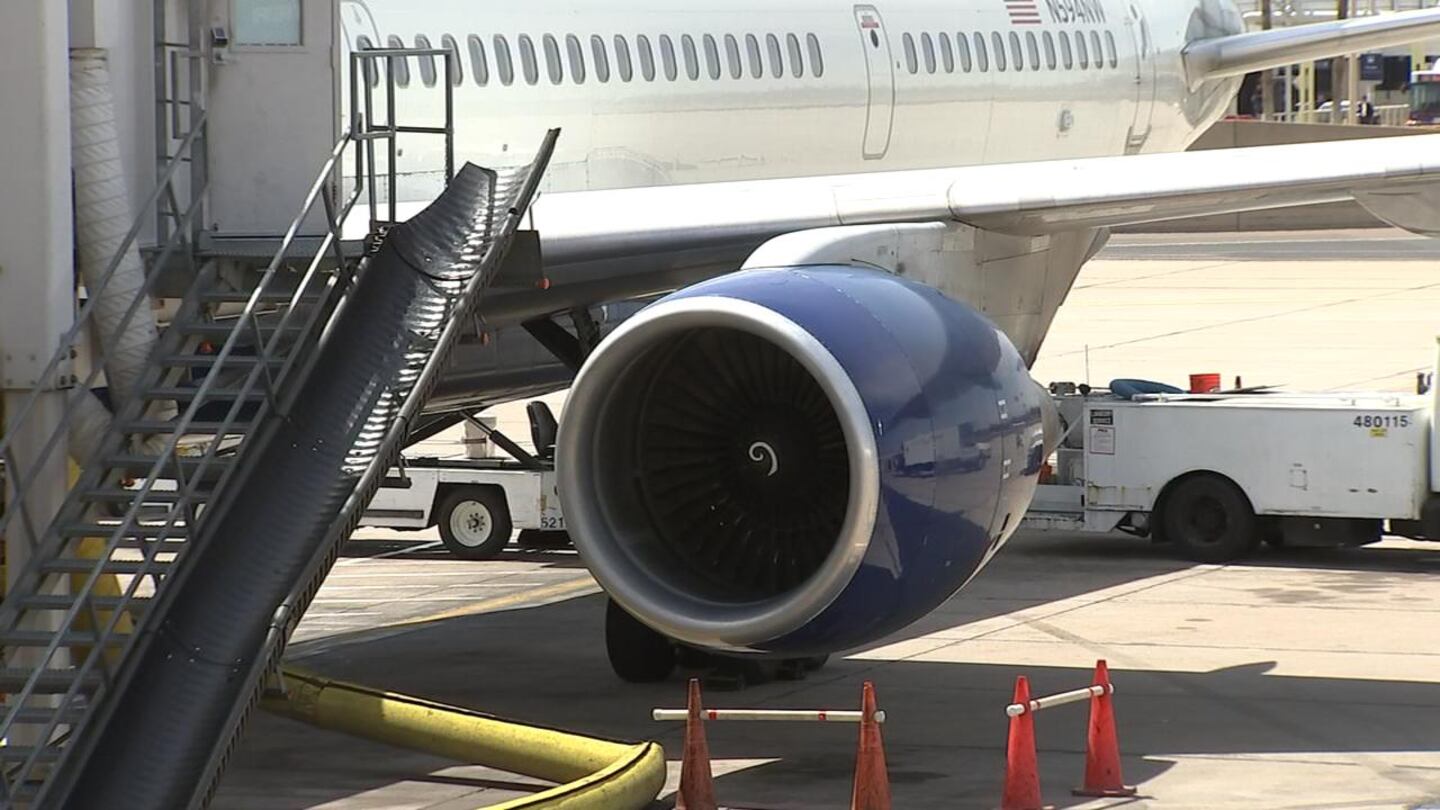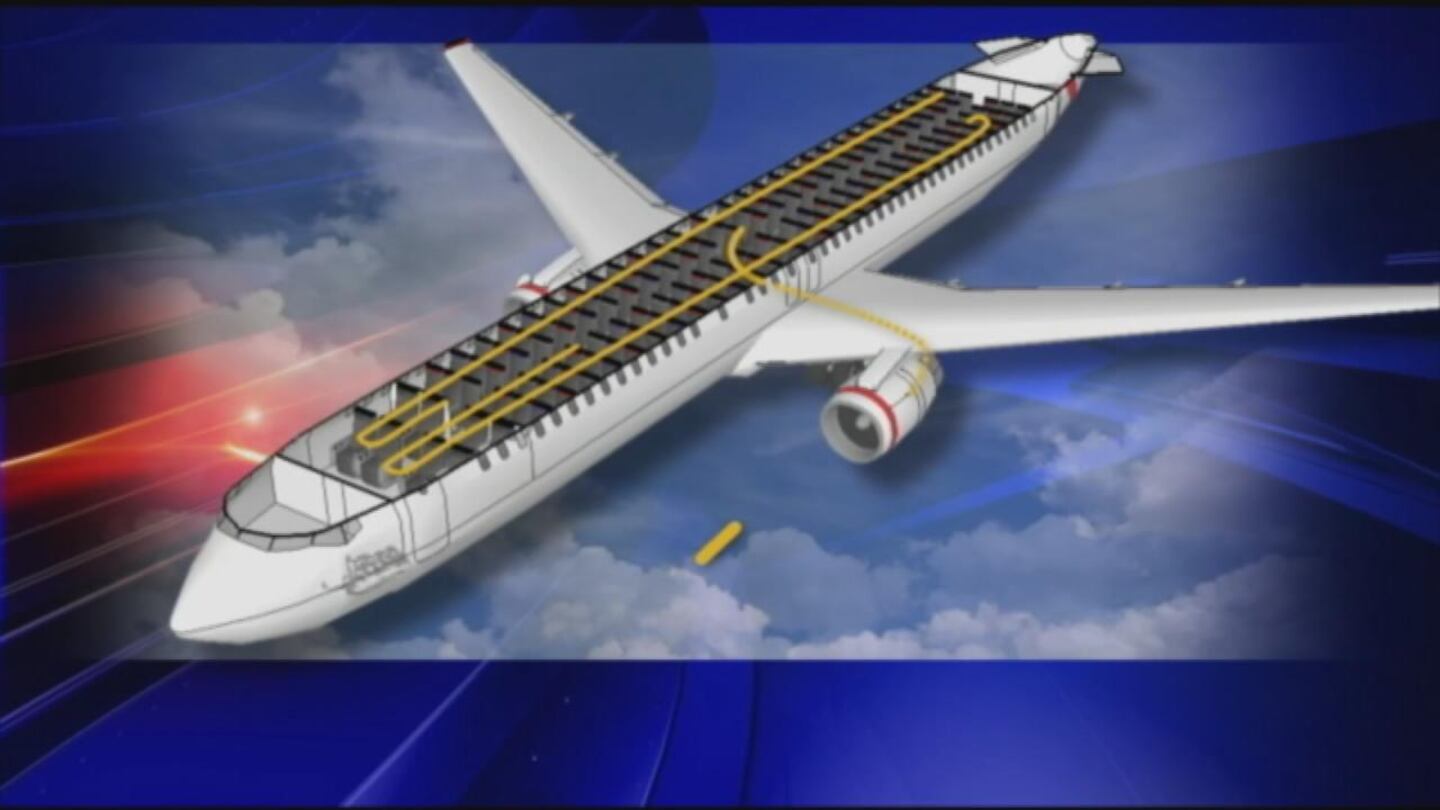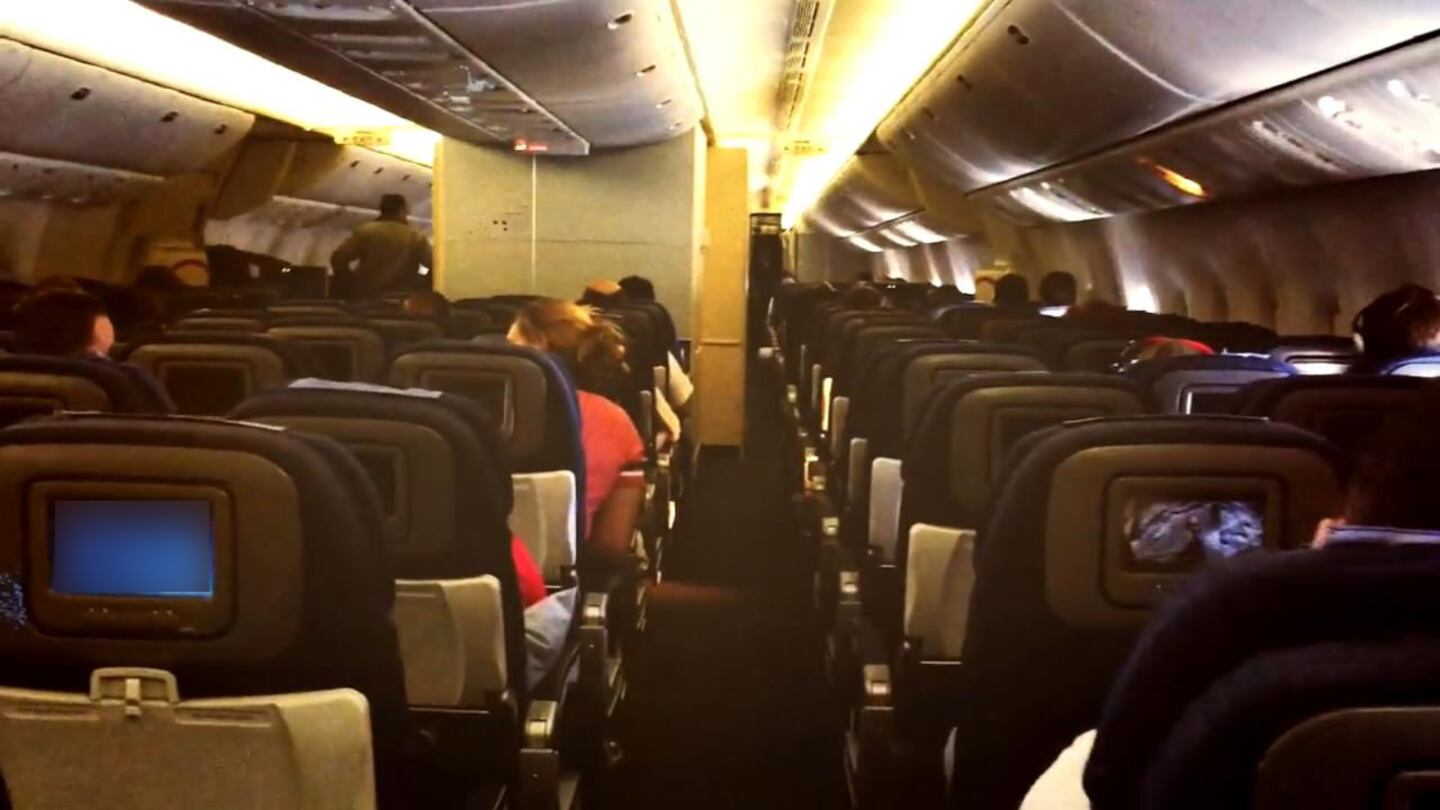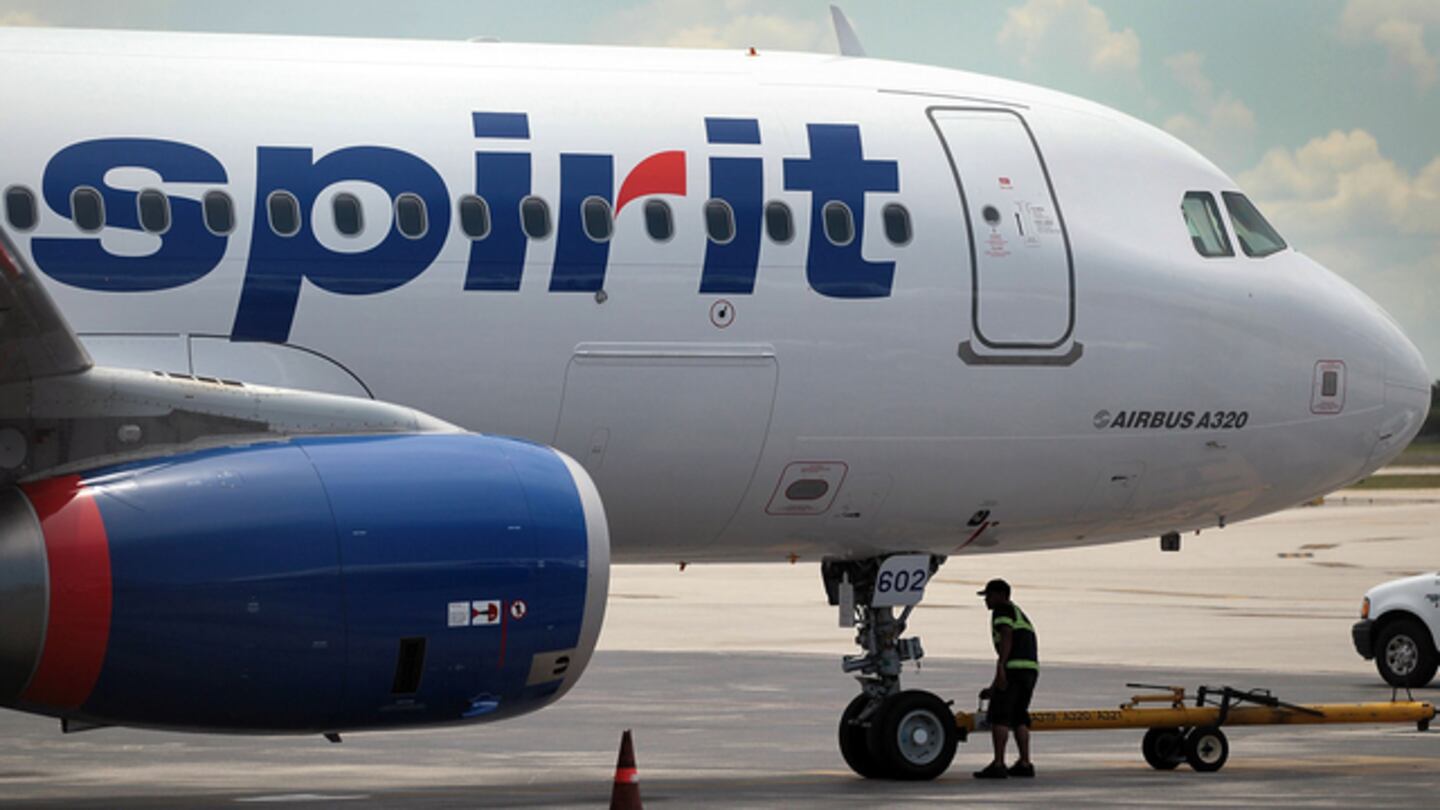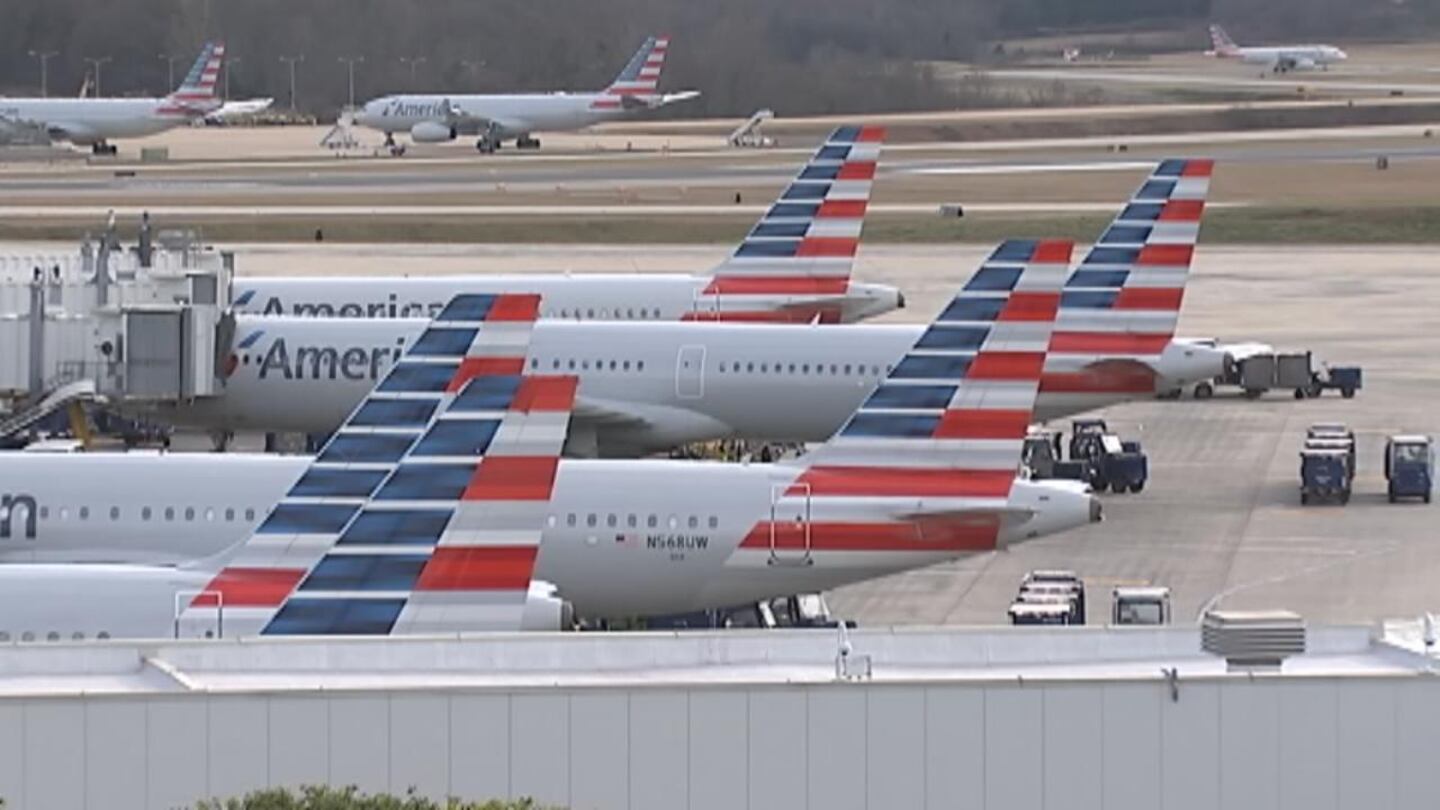ATLANTA — Channel 2 Action News has learned three airline crews in Atlanta in the past year had emergency medical care after they say fumes on board their planes made them sick.
The director of Georgia's Poison Center told Channel 2's Tom Regan the agency received emergency calls three different times in the past year about flight crews falling ill at Hartsfield-Jackson International Airport.
The jet engines that take you into the air, also draw in the air you breathe.
Despite filters, that air sometimes contains invisible fumes that can sicken crews, drawing an emergency response at airports in other cities and here in Atlanta.
Dr. Gaylord Lopez of the Georgia Poison Control Center told Regan, "We had 13 patients exposed over the past year related to airplane fumes."
He described the symptoms as "coughing, choking, gagging, wheezing, shortness of breath. One felt like they could not breathe anymore."
"I couldn't think. I had nausea. I felt dizzy. I had a headache."
Lopez said in one case, a ground supervisor also became ill.
"They went to investigate. They breathed the air and they got sickened as well," Lopez explained.
Pressured cabin air is drawn through the jet's engines. It’s called bleed air. In the engine's oil is an additive called Tricresyl phosphate, or TCP.
If there's a leak or other mechanical issue, fumes from the chemical could circulate into the cabin, affecting passengers, but more often the flight crew.
"I couldn't think. I had nausea. I felt dizzy. I had a headache," said former flight attendant Vanessa Woods.
She said when she worked for Alaska Airlines, she and three other flight attendants were taken to the hospital after a fume event. The doctor said they had hydrocarbon exposure.
"It's a real concern."
Woods says it's caused neurological issues that have made it impossible for her to work. She and the other flight attendants filed a lawsuit against Boeing, the manufacturer of the plane.
"I want Boeing to make changes. They need to put in sensor alarms, redesign the planes," Woods said.
RECENT INVESTIGATIONS:
- No escort section? No problem for area prostitutes on Backpage.com
- Never get another filling? Drug could regrow teeth
- Home Depot under investigation for work that may have put families in danger
In a statement, Boeing told Regan "The air in our airplane cabins is safe. Boeing's bleed air systems meet all applicable FAA requirements, and an overwhelming body of scientific evidence confirms the safety."
"We know that pilots and flight attendants are getting sick from toxic fumes," Sara Nelson, the president of the Association of Flight Attendants told Channel 2.
Based on a 2016 study from Kansas State University, the flight attendants union estimates there are five fume events each day on airlines world-wide. Most are minor, but the union says there's a risk.
"It's a real concern. Because if a crew member can become incapacitated, and there's a pilot flying the plane, that can be very dangerous to everyone on board," Nelson said.
A Channel 2 investigative producer dug through FAA reports and found more than 100 possible fume events on commercial airlines in the past year. In nine cases, illnesses were reported. The reports filed with the FAA come from a variety of airlines and a variety of planes.
"We know that it happened, not only with crews, but passengers that might be closer to the front part of the plane because of the way air circulates and where it starts coming into the plane," Lopez told Regan.
The FAA told Channel 2 Action News that fume events are rare considering the millions of flights in the U.S every year. The agency also says cabin air is as good or better than the air found in offices or homes.
But the flight attendants union says more can be done to ensure the safety of the crew and passengers.
“The only way to solve this issue is to build aircraft with alternative air circulation means," Nelson said.
Right now the Boeing 787 is the only commercial plane that doesn't use a bleed-air system.
The flight attendants union says it's working with Congress to require new fume sensors and filters on airplanes. Airbus, like Boeing, says its cabin air is safe.
In response to our report that Spirit Airlines had 11 out of the top 12 planes with the highest number of reported fume events in the last year, a spokesperson sent the following response:
"Thank you for taking the time to look into this issue. As you heard from the FAA, these events are very rare. To show the rarity of such events, in the time frame you researched (since May 1, 2016), we have had well over 150,000 individual flights, of which 41 have had an odor event. That’s a ratio of 0.000027 of flights. The reason you see more reports of odor events on Spirit aircraft is because we aggressively report our incidents. We have encourage
other airlines to also report their incidents, as well, with the hope of better research and understanding the root causes. While these odor events are very rare, we take each and every incident that takes place on one of our aircraft very seriously. In fact, Spirit is an industry leader in investigating and researching the various causes of these odor events. We have invested substantial dollars on detection equipment to help detect particulates that cause odor events on aircraft. We have also installed a new, more robust air filters on our planes in an effort to reduce the frequency of such events.
"It’s important to note, that odor events happen to every airline and every type of aircraft that uses bleed air, and has been an issue in the industry for decades. To call these fume events is mostly hyperbole. There are many reasons the air odor on aircraft can change. It could be because planes are flying through rain clouds and moisture gets into the aircraft's air system; foul odor outside the aircraft that gets through air filters; and yes, it could be because oil or hydraulic fluid odors get past air filters and into the bleed air. All sources of foul odor can be uncomfortable for passengers and crew - but to say these odors are toxic fumes or harmful – is an overstatement. That said, we understand the concern people may have regarding such odors, and that is why Spirit is leading the industry in trying to understand the root causes of the different odor events, with a goal of preventing and hopefully eliminating them in the future."
American Airlines, which also had one plane in the top 12, sent this statement:
"The health and welfare of our crews and customers continues to be our top priority at American Airlines. We take cabin odor issues seriously and have devoted extensive efforts over time, including working with aircraft, engine and auxiliary power unit manufacturers, to address these types of concerns. Our Technical Operations team actively monitors and conducts in-depth inspections whenever a cabin odor event is reported by one of our crewmembers. Our team members are encouraged to report any issues so that we can make improvements to their work environment."
Cox Media Group

